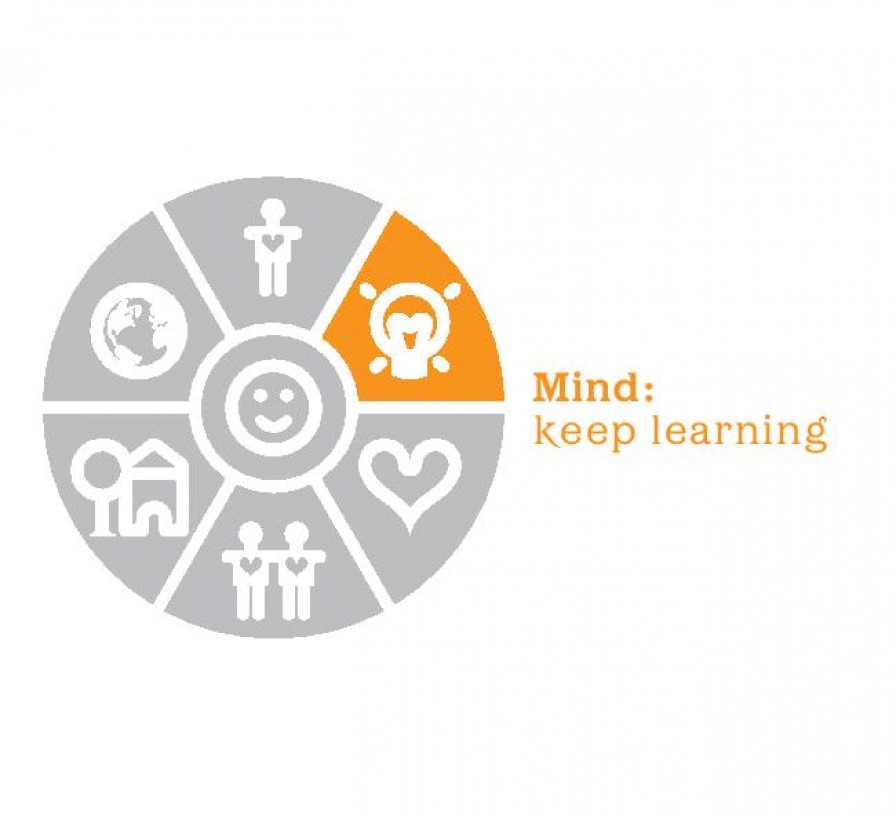Playing an instrument - the ‘Full-Body Workout’!

This week we are thinking about learning music and how it music affects the mind. Here we wanted to share an amazing TED-Ed talk called ‘How playing an instrument benefits your brain’ by Anita Collins which shows why music education is so important for the brain. ‘Keep Learning’ is one of the ‘Six Ways to Wellbeing’ and we are delivering a programme using Ways in Maidstone in Kent which is funded by Kent County Council, with investment from Artswork and the Royal Opera House Bridge.
Please take 5 minutes today and watch this video -
http://ed.ted.com/lessons/how-playing-an-instrument-benefits-your-brain-...
Summary of the Ted-Ed talk
Neuroscientists get excited about watching the brain functions of musicians because musicians use more parts of their brain simultaneously to complete tasks. When they scanned brains whilst people listened to music they saw ‘fireworks’ as the brain processed the musical information. However, those 'fireworks became a jubilee' when they scanned the brains of musicians playing their instruments
“Playing music is the brain’s equivalent of a full-body workout.”
Multiple parts of the brain light up 'simultaneously processing different information in intricate, interrelated and astonishing fast sequences'
What is is about playing music that sets the brain alight?
This is still a new area of research but they think that 'playing a musical instrument engages practically every area of the brain at once, especially the visual, auditory and motor cortices'. Not only that but ‘disciplined structured workouts strengthen those brain functions which we can apply to other activities.’
Playing music increases activity in the bridge between the two hemispheres of the brain allowing messages to get across the brain faster and through more diverse routes leading to better problem solving.
‘Musicians have higher levels of executive functions - planning, strategising and attention to detail and links to cognitive and emotional aspects which impacts on memory’ and in addition ‘musicians have higher memory function’
Is this unique to music?
Neuroscientists 'found that the artistic and aesthetic aspects of learning to play an musical instrument are different from any other activity studied' and that people who learnt music showed enhancement in other areas.
MORE INFORMATION ON SIX WAYS TO WELLBEING
We are interested to hear what other organisations think about the Six Ways to Wellbeing and will be blogging over the coming weeks about our learning and experiences of the pilot programme.
The Six Ways to Wellbeing are:
- Connect: People
- Be active: Body
- Take notice: Place
- Keep learning: Mind
- Give: Spirit
- Care: Planet
You can find out more about Six Ways to Wellbeing
Website: www.sixwaystowellbeing.org.uk
Facebook: www.facebook.com/liveitwellkent
Twitter: https://twitter.com/liveitwelluk @liveitwelluk
#sixwaystowellbeing
PREVIOUS SIX WAYS BLOGS
1) Introduction
Ways to Wellbeing Through Music: Here we introduce the ‘Ways’, look at how our tutors have adopted the ‘Six Ways to Wellbeing’ using music to engage the ethos behind the project and Russ Grooms (Project Manager) reflects on the programme as a whole. Article here
2) Connect with People Through Music: Six Ways to Wellbeing
Lucy Stone, our Strategic Director reflects on the minutiae of music making and how music making enables young people to connect with peers and their communities. Article here
3) Be active through music: Six Ways to Wellbeing
Russ Callaghan Grooms, the project manager, reflects on his early days listening to his walkman and how music, movement and being active go hand in hand. Article here
4) Take Notice through music: Six Ways to Wellbeing
Here we This week we are thinking about how music helps us stop and take notice and connects us to a place (in our memories, a sense of place or where we are now) and we reflect on music and memory, the everyday, our environment and lyrical content. Article here
